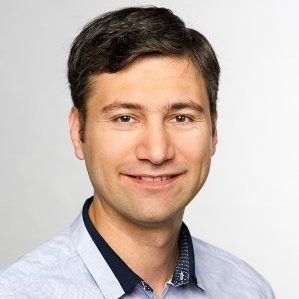Automating perennial farming operations in tree fruit crops is crucial for improving farming effectiveness, efficiency, and crop yield. However, current automation technologies lack full autonomy and are inefficient in complex farm environments. To address these challenges, our project aims to develop a cyber-physical system called Smart Harvesting. This system, integrating human intelligence and machine learning, will enhance decision-making and actuation, improving picking efficiency and system autonomy.
Internet-of-Things (IoT) enabled manufacturing systems form a particularly important class of cyber-physical systems (CPS). IoT-enabled manufacturing systems have a physical fabric woven from a heterogeneous mix of machines carrying and processing materials across the factory floor. The cyber fabric for these systems is a heterogeneous mix of wired and wireless digital communication networks enabling the global visibility of the data streams used to manage the physical fabric?s workflows. These IoT-enabled systems are complex CPS with a great deal of modeling uncertainty.
This NSF Smart and Connected Communities Integrative Research Grant (SCC-IRG) aims to address important equity and system integration challenges in mobility systems that could directly affect individual users' quality of life and access to critical services and employment opportunities. Results from this project will support the improvement of metropolitan areas broadly and the San Diego region specifically by exploiting emerging technologies and the public policy levers these technologies engender.
This Cyber-Physical Systems (CPS) project aims at designing theories and algorithms for scalable multi-agent planning and control to support safety-critical autonomous eVTOL aircraft in high-throughput, uncertain and dynamic environments. Urban Air Mobility (UAM) is an emerging air transportation mode in which electrical vertical take-off and landing (eVTOL) aircraft will safely and efficiently transport passengers and cargo within urban areas.
Origami-inspired structures that fold flat sheets along creases with designed patterns to create transformable structures have been widely applied in science and engineering, especially in space operations, e.g., for deployment of folded solar panels equipped on launched satellites. Although the deformation process plays an essential role in transitions between the origami states, few studies focus on the control and actuation of the origami folding mechanism toward high autonomy of the deformation process.
Human interaction with autonomous cyber-physical systems is becoming ubiquitous in consumer products, transportation systems, manufacturing, and many other domains. This project seeks constructive methods to answer the question: How can we design cyber-physical systems to be responsive and personalized, yet also provide high-confidence assurances of reliability?
Meeko Oishi received the Ph.D. (2004) and M.S. (2000) in Mechanical Engineering from Stanford University (Ph.D. minor, Electrical Engineering), and a B.S.E. in Mechanical Engineering from Princeton University (1998). She is a Professor of Electrical and Computer Engineering at the University of New Mexico. Her research interests include human-centric control, stochastic optimal control, and autonomous systems. She previously held a faculty position at the University of British Columbia at Vancouver, and postdoctoral positions at Sandia National Laboratories and at the National Ecological Observatory Network. She was a Visiting Researcher at AFRL Space Vehicles Directorate, and a Science and Technology Policy Fellow at The National Academies. She is the recipient of the NSF CAREER Award and a member of the 2021-2023 DoD Defense Science Study Group.
This NSF CPS project aims to develop new techniques for modeling cyber-physical systems that will address fundamental challenges associated with scale and complexity in modern engineering. The project will transform human interaction with complex cyber-physical and engineered systems, including critical infrastructure such as interconnected energy networks.
Capabilities of autonomous vehicles has surged in the last ten years, propelled by the promise that, in a very near future, commercial self-driving cars will be safe and perform well. Academia is spurring ground-breaking research (e.g., deep learning) and industry is validating software and hardware extensively with millions of miles being driven on the roads and in simulation. Yet, by all accounts - we are still years away from full deployment. One of the primary limitations is the presence of events outside `typical' scenarios.
In spite of tremendous advances in machine learning, the goal of designing truly autonomous cyber-physical systems (CPS), capable of learning from and interacting with the environment to achieve complex specifications remains elusive. This research seeks to address this apparent paradox (advances in machine learning/relatively low levels of autonomy) by developing a new class of verifiable safe learning- enabled CPS, capable of adapting to previously unseen dynamic scenarios where the data is generated, and decisions must be made, as the system operates.
This project proposes a novel and rigorous methodology for the design of embedded control software for safety-critical cyber-physical systems (CPS) with complex and possibly unknown dynamics by embracing ideas from control theory, formal verification in computer science, and Gaussian processes (GPs) from machine learning. Embedded control software forms the main core of autonomous transportation, traffic networks, power networks, aerospace systems, and health and assisted living.





